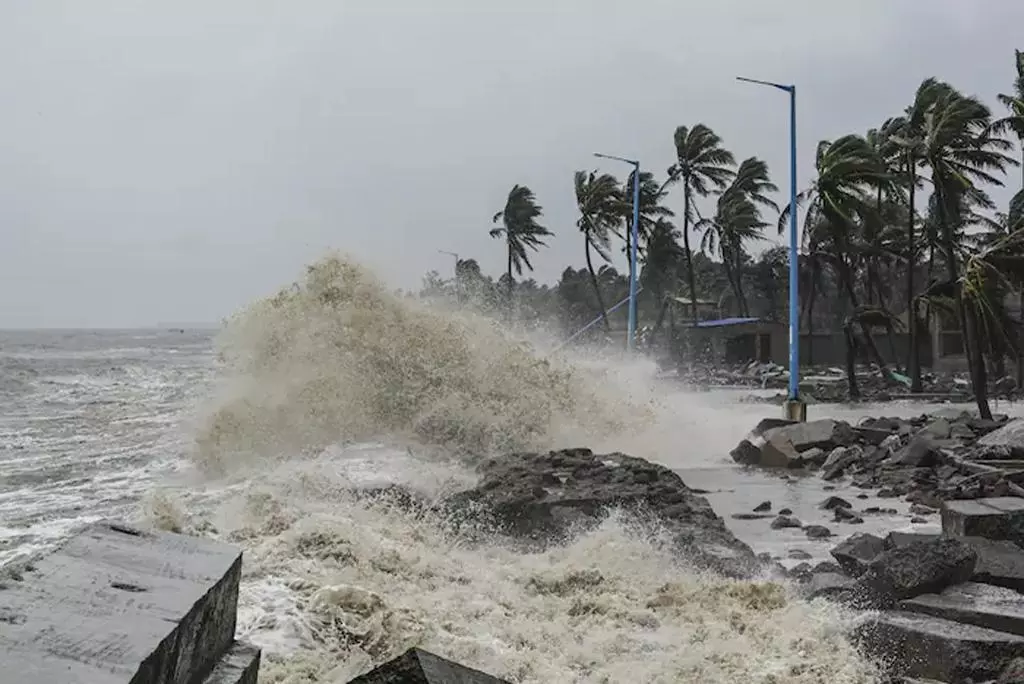Tamil Nadu on Alert: Intense Rains and Cyclonic Activity Predicted to Lash Chennai and Surrounding Districts
The state of Tamil Nadu, including its bustling capital Chennai, is bracing for a spell of intense rainfall due to a developing cyclonic circulation over the Bay of Bengal. According to the India Meteorological Department (IMD), the region is likely to experience significant downpours from November 2nd through the 8th, with conditions set to intensify by Thursday, November 7. Chennai, along with Kancheepuram, Chengalpet, and other nearby districts, is now under a yellow alert as heavy rain, strong winds, and rough seas are expected to impact the area.
This weather system has formed a large-scale circulation in the south Bay of Bengal, causing winds to gather moisture and move inland, which could lead to rains measuring between 6 cm and 12 cm over a 24-hour period in affected districts. This pattern, typical of the Northeast monsoon season, has prompted IMD to issue advisories not only for Tamil Nadu but also for neighboring regions such as Kerala and Karnataka. Even parts of Puducherry, Karaikal, and the Andaman and Nicobar Islands are expected to see heavy rain as the cyclonic circulation intensifies.
The Regional Meteorological Centre (RMC) in Chennai has forecast moderate to heavy rain for the city and surrounding districts, with places like Kancheepuram, Villupuram, Cuddalore, Mayiladuthurai, and Nagapattinam expected to experience severe downpours. Moving into next week, districts such as Theni, Dindigul, and Kanyakumari are predicted to see even more intense rains from November 8 to 12, as the weather pattern advances.
Meteorologists have noted that temperatures in Chennai will likely range from a high of 32°C to a low of 24°C over the coming days, with cloud cover and rainfall keeping conditions cooler than usual. The current cyclonic activity has also caused a north-south trough to develop, further intensifying the potential for prolonged rain across the region. The IMD’s regional director, N Senthamarai Kannan, shared that rain could persist over the next four days, varying in intensity between day and night.
In coastal and delta areas, warnings have been extended, with severe weather expected on November 9 and 10, while additional alerts have been issued for seven districts on November 12. Pradeep John, a popular local weather blogger, highlighted that after several days of steady rain across Chennai, Kancheepuram, and Tiruvallur, the rain pattern is likely to shift towards the southern coastal districts. Morning showers along the coast may also be common over the next few days.
Due to the deteriorating weather conditions, fishermen are strongly advised to avoid venturing into the Bay of Bengal until November 9, with rough seas and gusty winds reaching up to 55 kmph in some areas. This advisory has been issued in response to the possibility of squally winds of 35-45 kmph across Tamil Nadu’s coastlines, posing a serious risk to small boats and fishing operations.
Meanwhile, water levels in major reservoirs are being closely monitored as rains continue to feed the rivers and dams. The Vaigai Dam, for instance, has already reached 64.34 feet, just shy of its maximum capacity of 71 feet. With the persistent rainfall, officials from the Tamil Nadu Water Resources Department are carefully observing the situation, prepared to release water for agricultural needs if levels continue to climb. Should the water level rise further, flood warnings will be issued to ensure community safety.
The anticipated rainfall brings a mix of concerns and relief, as the state prepares for potential flash floods while farmers and agrarians remain hopeful for water supply during this critical growing season. The monsoon’s arrival is a defining moment for Tamil Nadu, and with Chennai’s flood-prone areas under close watch, officials are poised to respond swiftly to any adverse developments.

COMMENTS (0)
Sign in to join the conversation
LOGIN TO COMMENT